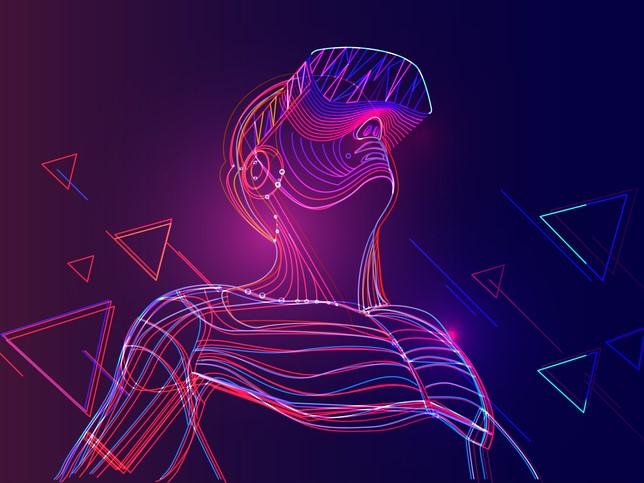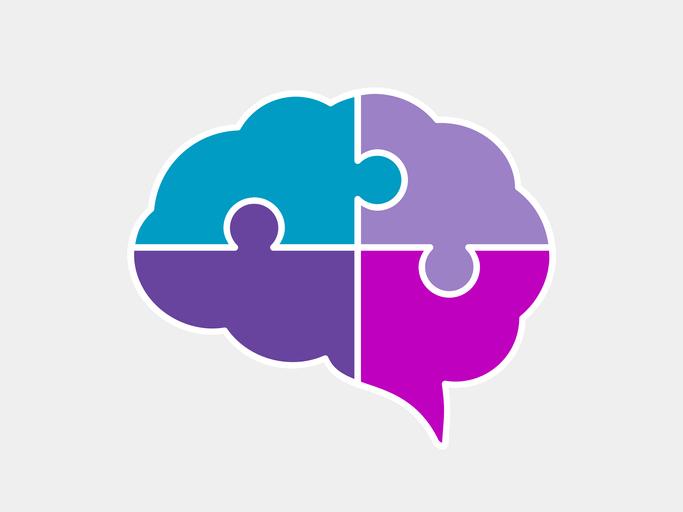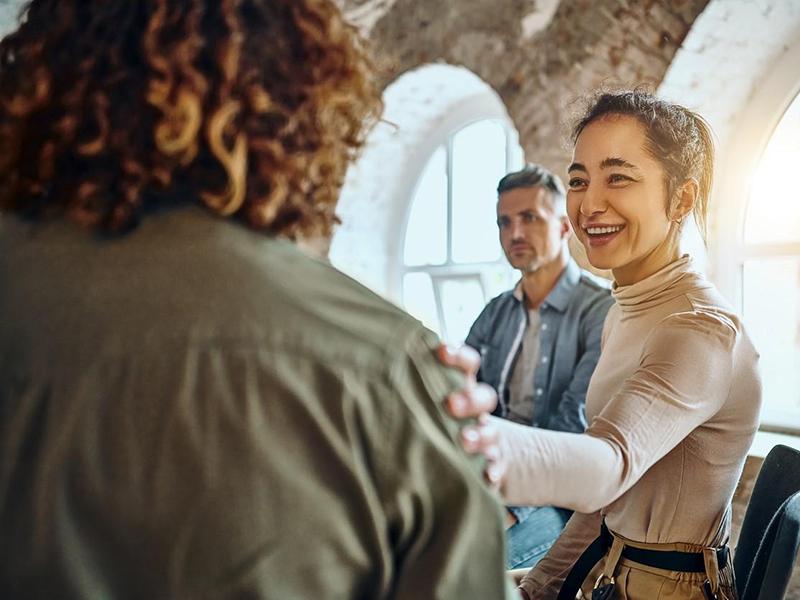
How the shores of a VR island promote student well-being and social connections
Virtual reality environments can create safe and relaxing spaces for students, offering them mindfulness meditation and social connection, says Pete Bridge
You may also like
Popular resources
I recently spent time on a tropical beach with students on our health sciences courses chatting about mental well-being, telling bad jokes and watching a colleague try to play the ukulele. The birds were singing, the waves were washing on the beach and the palm trees were swaying in the breeze. While this would be unusual itself, even in tropical Liverpool, the meeting took place in virtual reality (VR) from the comfort of my lounge. Our students were on remote clinical placements across the UK – from Portsmouth to Dundee – and we were meeting up via Oculus Quest VR headsets at our regular “beach night” to check in with them and help support their mental well-being.
Virtual reality and well-being
Although 3D VR environments are increasingly being used to support communication and, in some cases, to help with meditation, these aspects had not been combined before to create a holistic support environment. Our evaluation of this solution examined how the interface of these two aspects worked to deliver genuine impact on student mental health.
We developed our VR island to provide support for our nursing and allied health profession students because they spend a lot of time away from their friends and family while undertaking clinical placements. The physical impact of shift work and the emotional strain of healthcare work, combined with academic and clinical workloads and assessments, mean that these students are at risk of mental illness. With funding from the Office for Students, we developed a VR environment that included mindfulness meditation resources, a calming and immersive location and a range of safe social spaces where students could meet with tutors or peers.
Some of the key lessons learned when developing and using VR for mental well-being support include:
Calmness by design
Our choice of a tropical beach environment was deliberate, and the space was designed to promote relaxation. Other options can hide hidden terrors for some people; for example, a peaceful forest or jungle clearing can trigger thoughts of snakes or spiders for some users. Our software developers employed an architect with specific training in designing buildings that reduced anxiety and harnessed his skills to create calming, nurturing and safe virtual spaces. Careful choice and design of the environment should be a priority for supporting mental well-being.
Anonymity through avatars
One of the lessons we learned rapidly after switching to online lectures during the Covid-19 pandemic was that many students preferred to keep their cameras off. Using avatars enabled students to free themselves from gender, age and ethnicity constraints. We developed avatars that were vaguely humanoid and highly customisable to help students with this and to help them express themselves as they wished. Use of avatars in many cases can help students to engage with others with more confidence and openness.
- A trauma-sensitive approach to teaching and learning
- The metaverse is much more than a virtual copy of your campus
- Get started with virtual reality for learning and teaching
Use the VR environment
VR-based meditation applications are emerging all the time and offer unique and immersive relaxation opportunities, yet most of these lack interactivity or any choice of where to sit and meditate. Encouraging users to find their own space and using mindfulness audio tracks to focus meditation on to key elements within the VR environment enables people to take ownership of their mindfulness practice and increase engagement. Many of our users enjoyed exploring the beach areas for themselves to find their favourite place, be that sitting by the fire pit or by the sea watching our capybara chewing grass or the butterflies. To be clear, users watch the butterflies – the capybara don’t chew the butterflies.
A stress-free escape
One of the strongest findings from our evaluation was how much students valued the ability to escape. This included escape from their placement, from their accommodation, their noisy neighbours or the stresses that they were experiencing. One of the key drivers for this project was the desire to provide students with an alternative reality that did not require them to spend even more time on a phone or in front of a laptop screens. Our feedback indicated that using Oculus Quest VR headsets instead was well received; some students referred to their time on the VR island as their treat they had earned and deserved. Few would say this about an online meeting.
Beyond healthcare students
Although we designed this environment for our future nurses and health professionals to support them while they undertake clinical placements, the wider applications of this for other students are considerable. While meeting in VR cannot replace the human contact available on campus, it has been shown to provide valuable social and mental well-being support. With the addition of the mindfulness meditation resources, this has the potential to help other students undertaking remote placements as part of their studies.
Doctors in the 18th-century would frequently prescribe their patients a visit to the seaside to cure a host of ailments both physical and mental. It may be that higher education providers should now consider a virtual version of this therapy for their students.
Pete Bridge is a senior lecturer in radiotherapy at the University of Liverpool.
The University of Liverpool has been shortlisted for Technological or Digital Innovation of the Year at the Times Higher Education Awards 2023 #THEAwards. See the full list of shortlisted candidates. Winners will be announced at a ceremony on 7 December in Liverpool.
Academics and university leaders from across the UK and Ireland will come together that week at THE Campus Live UK&IE to talk about institutional strategies, teaching and learning, the student experience and more. Join us for this two-day event in Liverpool.
If you would like advice and insight from academics and university staff delivered directly to your inbox each week, sign up for the Campus newsletter.


